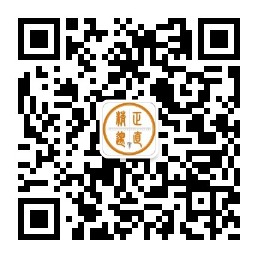
I. Basic Information
Dr. Sun Nanxiang is an assistant research fellowat CASS Institute of International Law. His major is international economic law and cyber law. From September 2006 to June 2016, he studied at Southwest University of Political Science and Law and obtained a bachelor's degree in international economics and trade (2010), a master's degree in international law (2013), and Ph.D. in international law (2016). He joined the Institute in July 2016.
Dr. Sun is the deputy director of the Editorial Office of the Blue Book on Cyber Law, council director of the Cyber and Information Law Society under the China Society of Law, council director of Beijing Society of Internet Finance Law, a senior researcher at the Digital Economy and Law Center of the University of International Business and Economics, one of Top 100 Young Legal Scholars selected by Beijing Law Society, and a specialist commentator at Legal Daily Network.
Dr. Sun has published more than 30 academic papers in Chinese’s SSCI and SSCI journals, as well as 10 commentaries in newspapers and media, such as People's Daily. He also submitted nearly 20 reports to China’s central government.
Dr. Sun has conducted academic research at the Max Planck Institute, the World Trade Institute, and the University of Technology in Sydney. He has also participated in several academic activities in the United States, Canada, and HKSAR.
Dr. Sun has recently presided over such national projects as the National Social Science Fund, the Chinese Ministry of Justice Research projects. He has also undertaken the International Research and Exchange Program of the Chinese Academy of Social Sciences, the Collaborative Research Project between the Chinese Academy of Social Sciences and the Australian Academy of Social Sciences, and the Youth Research Project of the Chinese Academy of Social Sciences.
II. Major Academic Viewpoints
1. Legal Issues Concerning Internet Regulation in the International Trade Regime
Since the beginning of the 21st century, with the development of communication and network technologies, such as Internet, cloud computing and the Internet of Things, the cyberspace has been regarded as the fifth human domain. While Internet technology is conceptually neutral, it could be used as a basic communication medium that transmits illegal information and data, which would pose serious threats to individual rights, public morality, public order and national security. Therefore, cyberspace cannot be exempt from the governance by sovereign States. However, all the internet regulatory measures, which are in the form of domestic regulations and aim to protect individual rights, collective rights and national interests, have extraterritorial effectsto some extent and would pose a threat to free trade. As global trade rules, the WTO Agreement can be applied to the Internet trade-related issues. In view of this situation andon the basis of recognizing the WTO Agreement application, this book probes the following legal issues: first, whether Internet regulations could constitute trade barriers; second, what kinds of trade barriers posed by Internet regulations can exist in reality; and third, how to invoke the exception clauses to justify internet regulations.
2. The United States' Economic Unilateralism: Current Situation and Legal Issues
After Donald Trump became the U.S. President, the U.S. has not only hindered the operation of multilateral dispute settlement mechanism, but also advocated reciprocal treatment to replace non-discriminatory treatment doctrine and continued to strengthen the restraint on international lawby domestic law. Those U.S. economic unilateral measures undermine the rule-oriented international economic order. The conflict between WTO agreement and current trade practices, the ineffectiveness of the dispute settlement mechanism, and the lack of consensus on the “market economy mode” are the reasons why the U.S. blocks WTO. In practice, U.S. economic unilateralism is threatening the function of multilateral mechanism and triggering an international rule of law crisis. In order to solve the challenges posed by the U.S., the international community should introduce the majority votesystem into the decision-making procedure, and strengthen the WTO's disciplines to regulate bilateral or regional trade agreements. As a responsible developing country, China should base itself on the fair competitive conditions to improve its market economy and also actively promote WTO reform from a multilateral perspective.
3. The Human Rights Attribute of the Internet Freedom and its Application
In the New Millennium, the cyberspace has been transformed from a res nullius system to a human-centered system anda right-oriented regime. Internet freedom consists of free expression, Internet freedom of information, free communication, and the availability of Internet infrastructure.Internet freedom is not absolute. However, the restrictions on Internet freedom should meet at least three conditions: firstly, the restrictive measures should be expressly provided for by law; secondly, the measures should meetlegitimate objectives; thirdly, the measures should pass the necessity test. China’s Internet policy does not violate international human rights’ obligations. It should be noted that the potential for human rights’ achievement is endless. In future, the law of cyber-security should guarantee the reasonable legal remedies and offer diversified dispute settlements. China shall strengthen domestic and international Internet infrastructure and actively participate in thesolution of the regional " digital divide", so as to build a cyber international community for all mankind.
4. Taking Internet Trade Freedom and Its RegulationSeriously: A Reflection from the Perspective of the WTO Law
"Internet Freedom" and "Internet regulation" are two core issues in the information age. In the WTO framework, Internet trade freedom includes free trade in information technology products, freedom of services, freedom of the media and information freedom. Undoubtedly, Internet trade freedom is not unlimited. The WTO law stipulates three types of non-trade concerns for domestic regulations, e.g., national security exception, public morality and public order exceptions, and personal data protection exception. It should be noted that different non-trade concerns apply different standards and conditions. For instance, in order to successfully defend its violations, the measures should meet the requirements of the necessity test and be applied non-discriminately. During the process of promoting the "Internet plus" strategy, China could draw on the cyber freedom concept in the WTO law. Furthermore, as a responsible country, China shouldadopt measures to protect its national, public and private interests in cyberspacein accordance with the WTO law.
5. Piercing the Veil of National Security: Does China's Banking IT Security Regulation Violate the TBT Agreement?
The first decade of the 21st century has witnessed disputes between China and the Western world overregulation of IT products. Currently, China’s banking IT security regulation has spurred a heated debate among international lawyers. More specifically, the critical issue is how to strike a balance between the wants of free trade and the needs of national security. Under WTO jurisprudence, China’s banking IT security regulation would be a trade barrier to not only foreign IT products, but also other domestic products.However, China would defend its measures on the ground of national security in the TBT Agreement. Theoretically, China would not shoulder the responsibility of adopting the Common Criteria as a basis of technical regulations. It should be noted that the real risk of treaty violation is the de facto discrimination created by China’s regulations. Multilateral or bilateral co-operation, or good practice guidance may be feasible and practicalmeasures for addressing the issue of cyber security regulations.
III. Main Publications
1. “The United States' Economic Unilateralism: Current Situation and Legal Issues”, Global Law Review, 1(2019);
2. “USMCA’s Restraint on the Non-market Economy Countries and Its Legality”, Journal of Latin American Studies, 1 (2019);
3. “On the Data Subject as a Consumer and the Relevant Data Protection Mechanism”, Political Science and Law, 7 (2018);
4. “The Application of the Margin of Appreciation in International Adjudication and Its Further Implications”, Chinese Review of International Law,4 (2018);
5. “The Responsibility Distribution between the European Union and Its Member States in Investor-State Dispute Settlement”, Chinese Journal of European Studies, 1 (2018);
6. “The Human Rights Attribute of the Internet Freedom and its Application”, Science of Law, 3 (2017);
7. “From Right Restriction to Empowerment: The Future of Internet Trade Law”, Contemporary Law Review, 5 (2016);
8. “Taking Internet Trade Freedom and Its Regulation Seriously: A Reflection from the Perspective of WTO Law”, Peking University Law Journal, 2 (2016);
9. “Piercing the Veil of National Security: Does China's Banking IT Security Regulation Violate the TBT Agreement?”, Asian Journal of WTO & International Health Law and Policy, 2 (2016);
10. “The Research on Non-Governmental Obstacles in Foreign Investment and China’s Strategy, Modern Law Science”, 1 (2016).



